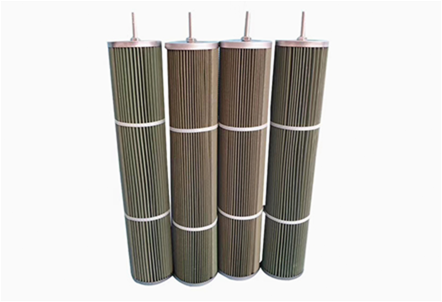 Tel:
+8615930870079
Tel:
+8615930870079
ต.ค. . 21, 2024 06:03 Back to list
Exploring the Benefits of HEPA Cartridges for Improved Air Quality and Health
Understanding HEPA Cartridges The Key to Clean Air
In recent years, the importance of maintaining indoor air quality has come to the forefront of public consciousness. With increasing awareness of air pollution and its effects on health, more individuals and businesses are turning to high-efficiency particulate air (HEPA) filters as a solution. A crucial component of these filters is the HEPA cartridge, which plays an essential role in trapping harmful particles and ensuring cleaner air in our environments.
What is a HEPA Cartridge?
A HEPA cartridge is specifically designed to contain and filter out particles from the air, ensuring that breathable air is free of pollutants. To qualify as a HEPA filter, it must meet strict efficiency standards set by the U.S. Department of Energy. Generally, HEPA filters capture 99.97% of particles that are 0.3 microns in size. This includes a variety of airborne contaminants such as dust, pollen, pet dander, mold spores, and even some bacteria and viruses, making HEPA filters crucial for maintaining a healthy living or working environment.
HEPA cartridges are commonly used in various systems, including air purifiers, vacuum cleaners, and HVAC systems. By incorporating these filters, these devices can significantly reduce the presence of harmful airborne substances and improve overall air quality.
Benefits of HEPA Cartridges
One of the primary benefits of using HEPA cartridges is their exceptional efficiency in capturing tiny particles that other filters may miss. This capability is particularly important for individuals with allergies, asthma, or other respiratory conditions, as cleaner air can lead to improved health outcomes.
hepa cartridges

Moreover, HEPA filters are beneficial in environments that require stringent air quality standards, such as hospitals, laboratories, and manufacturing facilities. In these settings, even minor contamination can result in serious health risks or compromised products. Therefore, the reliability of HEPA cartridges is paramount.
Another significant advantage is their ability to enhance overall comfort. Many people spend a considerable amount of time indoors, whether in homes or offices. By investing in HEPA filtration systems, occupants can enjoy fresher air, which can lead to increased productivity and well-being.
Maintenance and Lifespan
Despite their effectiveness, HEPA cartridges require regular maintenance to function optimally. Depending on the type of device and environmental conditions, HEPA filters may need to be replaced every 6 to 12 months. In environments with higher levels of dust or allergens, more frequent changes may be necessary. A clogged HEPA filter can severely reduce airflow and overstrain the device, resulting in inefficient operation and potentially higher energy bills.
Regular inspection and replacement of HEPA cartridges are necessary not just for efficiency but also for ensuring continuous health benefits. Using dirty or worn-out filters can lead to the resuspension of trapped pollutants back into the air, which negates the purpose of the filtration system.
Conclusion
In conclusion, HEPA cartridges represent a vital component in the pursuit of clean indoor air. Their superior filtration capability can lead to health improvements, increased comfort, and enhanced productivity. Whether for personal use at home or in professional environments that demand high air quality standards, investing in HEPA filtration systems is a prudent choice. Regular maintenance and timely replacement of HEPA cartridges ensure that these benefits are maximized, allowing individuals and families to breathe easier in their environments. As awareness of air quality continues to grow, HEPA cartridges will remain a cornerstone technology in providing cleaner, healthier air for everyone.
-
Types and Applications of Air Filtration CartridgesNewsJul.28,2025
-
The Role of Gas Turbine FiltersNewsJul.28,2025
-
Mastering Air Filter Cartridge UseNewsJul.28,2025
-
Advanced Turbine Filters for Modern Gas TurbinesNewsJul.28,2025
-
Cellulose Air Filter Cartridge Advantages in Dust FiltrationNewsJul.28,2025
-
Cellulose Filters for Air Particle ReductionNewsJul.28,2025

 Email:
Email:





